Everyone’s asking R U OK? But what do you say if you’re not?
Everyone’s asking R U OK? But what do you say if you’re not?
- It’s OK to not be OK
- They’re asking because they care
- Be honest
- If you’re not ready to talk about it yet
- Tell them how they can support you
- Get the professional help you need
- Ask the question back
- Help is available
It’s OK to not be OK
These are the go-to responses we hear all too often when someone asks how we are.
“I’m fine.”
“Yeah, I’m good.”
“Not too bad.”
But what would happen if we were honest and said, “Actually, I’m not going so great right now.”?
Talking truthfully about how we’re feeling helps to normalise that things aren’t always great. Life can be tough and mental ill-health is more common that we realise. Did you know that 1 in 5 Australians experience a mental illness in any year?
It’s also important to remember that we’re in a stressful, unusual time – a pandemic. Many of us are in lockdown, away from loved ones and the support we need. And even if life was normal right now, it would still be OK to not be OK.
The most important thing we can do is be brave and talk about it.
They’re asking because they care
It can seem like we’re on autopilot when we ask how someone is. But as humans, we’re creatures who need connection. We want to check in on our loved ones and help them.
R U OK?’s research has shown that conversations can make a difference when someone’s struggling. Of those who have recently talked to someone about what’s troubling them:
- 80% said it made them feel more supported and cared about, feel more connected and that it helped them feel better about themselves and their situation.
- 75% felt more connected.
- 72% felt it helped them feel better about themselves and their situation.
Be honest
There’s a saying, “If you’re not speaking it, you’re storing it and that gets heavy.”
Yes, it’s hard being vulnerable and talking about how you feel, but carrying your load alone is much harder.
If it feels safe, be honest. Yes, it can be daunting, complicated and messy. It might seem trivial or embarrassing (thanks for that, pesky mental health stigma!). But the person asking you probably won’t think any of that.
And while telling someone what’s going on may not solve all your problems, it will help lighten your load.
If the person who’s asked if you’re OK knows you well enough, they’ll likely already have sensed that something is up. And they’ll likely dig a little deeper if they don’t believe you when you downplay your feelings.
If you’re not ready to talk about it yet
If you need a moment to process your thoughts before answering, you could say, “Give me a moment. I need to gather my thoughts.
You may want to talk about it but don’t know how to approach the conversation. Or you might know you’re not alright but can’t quite put your finger on why. Let them know. They may be able to help you process your thoughts.
Things might be too fresh, traumatic or hard to talk about right now. You could say something like, “Thanks for asking. I’m not OK, but I’m not ready to talk about it yet. But, here’s how you can support me in the meantime…”.
Simply flagging that you’re not alright means they can be there for you now and when you’re ready to talk.
Tell them how they can support you
Ask for what you need. How can they help you? Be as specific as you can.
Practical help:
- Cooking meals
- Babysitting
- Cleaning
Emotional help:
- Continuing the conversation
- Calling in a few days to check in
- Meeting up to go for a walk
Professional help:
- Researching support services
- Booking an appointment for you
- Taking you to your appointment or being there for you after
If they’re a good friend, colleague or family member, they’ll likely have some ideas on how they can help you too.
Get the professional help you need
It’s a good idea to book in for a chat with your GP. Your doctor can start you on a mental health treatment plan. This lets you claim up to 20 sessions with a mental health professional each year.
They can refer you to a psychologist, psychiatrist, counsellor or other service. They can also give you advice on next steps. This might include exploring medication and tips on managing stress and your lifestyle.
For 24/7 crisis support, call Lifeline on 13 11 14. You can also chat with one of their mental health professionals online or by text message (0477 13 11 14).
Ask the question back
No matter what your answer is, thank the person asking and let them know you appreciate their concern.
If you have the capacity, asking them how they are is always a good idea.
If you don’t feel you have the emotional space to listen to them at that moment, that’s ok. You can let them know you’re thinking of them and can be available for a chat another time.
Help is available
In an emergency, please call 000.
If you or someone you love is struggling with mental ill-health, help is available.
- Call Lifeline Australia anytime on 13 11 14, text 0477 13 11 14 or chat online to talk to someone. Lifeline specialises in crisis support and suicide prevention.
- Call the 24/7 Suicide Call-Back Service on 1300 659 467 or chat online for people at risk of suicide, their carers and bereaved.
- If you’re under 25, you can call Kids Helpline 24/7 on 1800 55 1800 or chat online.
- Beyond Blue and Black Dog Institute offer some great resources on dealing with mental ill-health. Whether you are suffering yourself, or love someone who is, they have information to help you in your journey.
Post categories
- Employers (20)
- Job seeker tips (172)
- News (56)
- Real stories (144)
- Referral partners (1)







